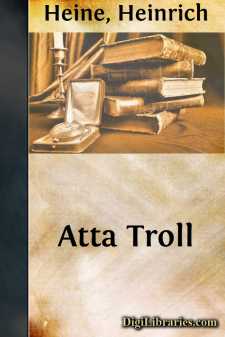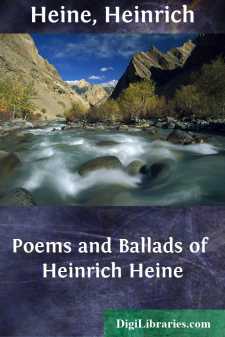Categories
- Antiques & Collectibles 13
- Architecture 36
- Art 48
- Bibles 22
- Biography & Autobiography 816
- Body, Mind & Spirit 145
- Business & Economics 28
- Children's Books 18
- Children's Fiction 14
- Computers 4
- Cooking 94
- Crafts & Hobbies 4
- Drama 346
- Education 58
- Family & Relationships 59
- Fiction 11831
- Foreign Language Study 3
- Games 19
- Gardening 17
- Health & Fitness 34
- History 1378
- House & Home 1
- Humor 147
- Juvenile Fiction 1873
- Juvenile Nonfiction 202
- Language Arts & Disciplines 89
- Law 16
- Literary Collections 686
- Literary Criticism 179
- Mathematics 13
- Medical 41
- Music 40
- Nature 179
- Non-Classifiable 1768
- Performing Arts 7
- Periodicals 1453
- Philosophy 66
- Photography 2
- Poetry 897
- Political Science 203
- Psychology 45
- Reference 154
- Religion 516
- Science 126
- Self-Help 86
- Social Science 82
- Sports & Recreation 34
- Study Aids 3
- Technology & Engineering 59
- Transportation 23
- Travel 463
- True Crime 29
Heinrich Heine
Heinrich Heine (1797–1856) was a prominent German poet, essayist, and literary critic, known for his sharp wit and lyrical mastery. His works, such as "Buch der Lieder" (Book of Songs), combined romanticism with ironic commentary on contemporary society. Heine is also remembered for his political writings, including "Deutschland. Ein Wintermärchen" (Germany. A Winter's Tale), which critiqued German politics and culture. Due to his controversial views, many of his works were banned in Germany, and he spent the latter part of his life in Paris.
Author's Books:
Sort by:
by:
Heinrich Heine
HE who has visited the idyllic isle of Corfu must have seen, gleaming white amidst its surroundings of dark green under a sky of the deepest blue, the Greek villa which was erected there by Elizabeth, Empress of Austria. It is called the Achilleion. In its garden there is a small classic temple in which the Empress caused to be placed a marble statue of her most beloved of poets, Heinrich Heine. The...
more...
by:
Heinrich Heine
HEINRICH HEINE. (BIOGRAPHICAL SKETCH.) Harry Heine, as he was originally named, was born in Düsseldorf on the Rhine, December 13th, 1799. His father was a well-to-do Jewish merchant; and his mother, the daughter of the famous physician and Aulic Counlor Von Geldern, was, according to her son, a "femme distinguée." His early childhood fell in the days of the occupation of Düsseldorf by the...
more...



